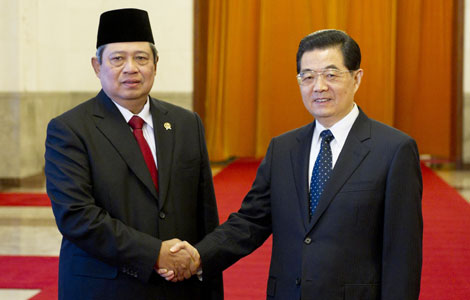 |
|
|
|
|||||||||
Even as a majority of foreign MBA students flock to big brand business schools in the nation's economic hubs, there are those that are taking the route less traveled.
For Simon Roberto, an IMBA student at Chongqing University, studying in a city like Chongqing, which is less well known in the West, is a chance to grab a front row seat to learn more about one of China's fastest developing cities.
"What attracts me most is the fast development of China's cities like Chongqing. And if you want to succeed here, you have to understand it well and immerse yourself here," the 31-year-old German said.
He said much like the locations in which they are housed, IMBA programs in second-tier cities are developing at breakneck speeds.
The Economics and Business Administration School of Chongqing University first started offering the IMBA program in 2010 and has since seen dozens of students pass through its doors, despite being in a lesser-known location.
"Through the development and increasing popularity of Chongqing city and our IMBA program, it is expected that by 2015, we will have about 150 foreign students enrolled in our IMBA program," said Liu Xing, the dean of Economics and Business Administration School of Chongqing University.
Currently, there are 50 international students enrolled in the program.
It is the relatively removed location of second-tier IMBA programs that gives students unique opportunities, Roberto said.
"Because there are far fewer foreign students like me studying here than in the better-known cities, we enjoy more opportunities and resources to develop our talents," he said.
However, to cultivate a first-class IMBA program, Chongqing University still has a long way to go.
Xiong Bingqi, deputy director of the 21st Century Education Research Institute, a private, nonprofit policy-research body, said universities in lesser-known cities still lack favorable conditions for development of IMBA programs.
"Lesser-known cities are not as attractive to the foreign students and professors as best-known cities," Xiong said. "What's more, be it in employment opportunities or education facilities, less-familiar cities' universities still lag best-known cities," he said.
To bridge the gap, Chongqing University in cooperation with the Chongqing municipal government is offering incentives to attract foreign students to the IMBA programs. Notable among them is the over 100,000-yuan ($15,800) scholarship, which covers most of the expenses required to study in the 2-year program.
Primarily geared at foreign countries such as the United States, the school has made big efforts to attract first-class scholars to participate in education exchange activities.
Wu Ying, iPad, Jeremy Lin, Valentine's Day, Real Name, Whitney Houston, Syria,Iranian issue, Sanyan tourism, Giving birth in Hong Kong, Cadmium spill, housing policy

|

|

|

|

|

|